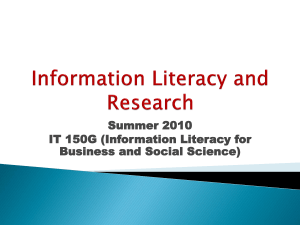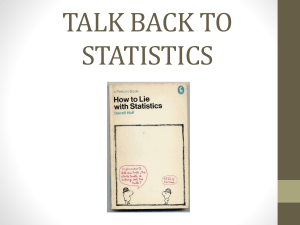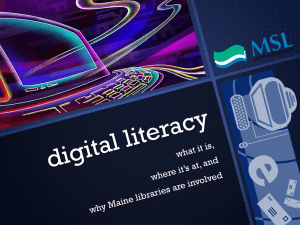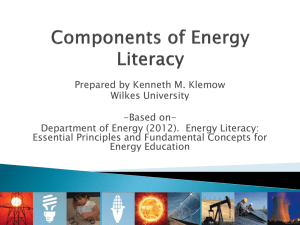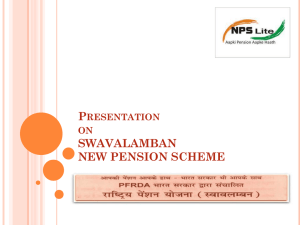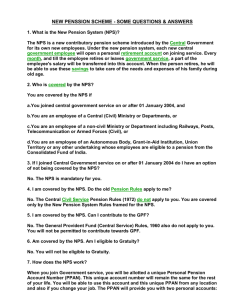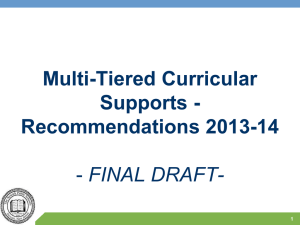4.4 - Presentation - P K Tiwari - 23-03-2010
advertisement
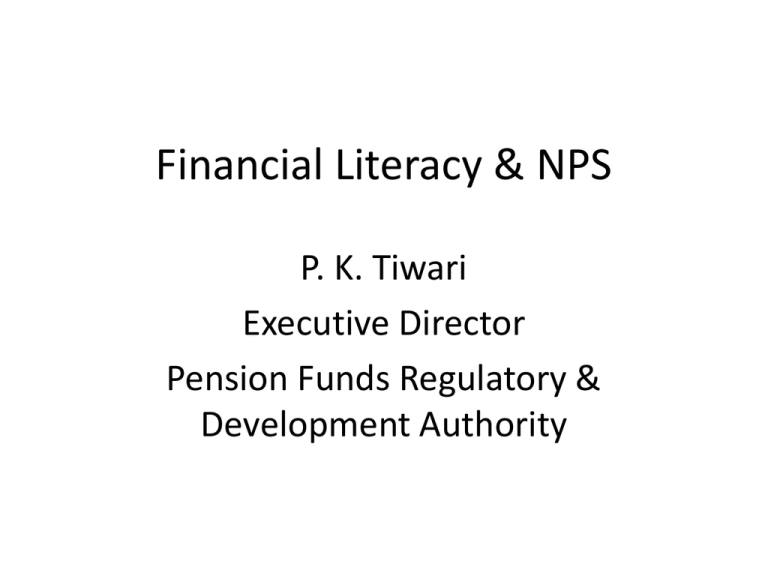
Financial Literacy & NPS P. K. Tiwari Executive Director Pension Funds Regulatory & Development Authority PFRDA: What we do • Established by Govt. resolution; proposed to be statutory in due course • Mandate: regulation and development of pension sector • Administers New Pension System (NPS) • For Govt. employees: 1 Jan 2004 • For Unorganised sector: 1 May 2009 • First of its kind: available to all citizens NPS: Distinctive Features • • • • • • • • DC, voluntary, IRA based 3 sets of intermediaries POPs: open accounts, accept contributions CRA: mobility across regions/ professions PFMs: professional, appointed through bidding Electronic transfer of info and funds Very low costs Individual has choices of PFM, invest. Schemes etc NPS: Recent Developments • • • • Contribution by Govt.: Budget announcement States encouraged to follow 39 POPs registered, over 50,000 POS We plan to make the distribution network most comprehensive • Option of opening accounts online • NPS at your desktop is an avowed objective Fin. Literacy and NPS • Inclusion must also look at post working life • NPS must be an integral part of inclusion/ literacy campaigns • RBI initiative to bring villages of 2000 within banking fold perfectly fits in our plan • Synergy with employment guarantee program- move towards livelihood guarantee • Pension Ganga must touch every vulnerable Literacy Campaigns: bird’s eye view • Many laudable initiatives • Ministry of Corporate Affairs, RBI, NABARD, Regulators, Stock exchanges, banks (Citi, ICICI etc) • NGOs: Microfinance touches more than 80 million lives • National Alliance for Financial Literacy (NAFIL) • ICICI Foundation The way ahead • • • • • Need for a national level coordinating agency Experience of US, UK, Australia, NZ Funding issues: Govt., regulators, PPP Need for innovative solutions Key components: – Linkage with school education – Online tools/ tech. based solutions – Helpline (national/ regional) Literacy: other important issues • What is it aimed at? – Ability to make informed decisions or ask right questions • Need to lay standards of fin. Literacy – LTCM failed with 3 Nobel laureates on board – Greenspan (2007) admitted he was aware of the risk in MBS much before the crisis (2008) • Literacy campaign has to be a continuous process Fin. Literacy and regulation • Complementary and not substitutes • Reg. very important as risk is rapidly shifting to consumer: literacy alone not sufficient • Stability requires a dynamic review of policies, practices (e.g., leveraging) and products (MBS), all of which can pose a risk collectively or individually • Literacy only a means, not an end • A broader view transcending regulatory silos required


